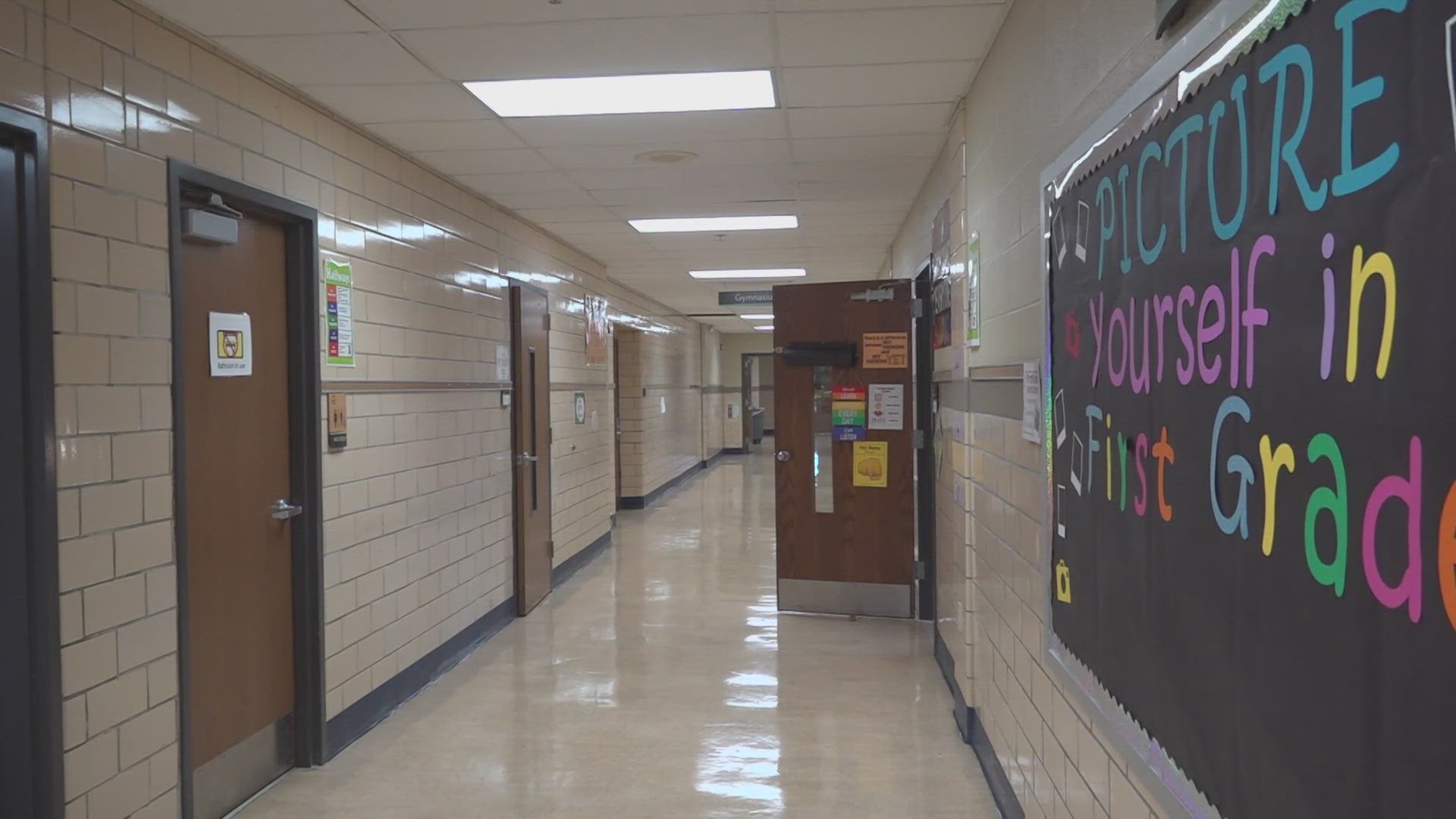ST. LOUIS — Chronic absenteeism is a growing problem in Missouri and Illinois schools.
Students are defined as being 'chronically absent,' if they miss more than 10% of instructional time.
According to the Missouri Department of Elementary and Secondary Education's 2023 report, one in four students in the state were defined as chronically absent.
Over in Illinois, the data is similar, with the State Board of Education reporting 28% of their students as chronically absent in the 2022-23 school year. The problem peaked in the 2021-22 school year, according to the department, with the rate of chronic absenteeism at 29.8%.
Margie Vandeven, Commissioner of Education for Missouri's Department of Elementary and Secondary Education, said this is a challenge in Missouri and across the nation.
"A lot of our work that's done in schools today is done in a collaborative fashion, so there's a lot of teamwork that's done, and when your student misses a day or half of the class, or anything, it really falls on the rest of the students to pull it together," she said.
Vandeven said this challenge has grown dramatically since the pandemic.
According to Chris Gaines, Education Plus CEO, before COVID, attendance rates were well above 90% and now some districts are struggling to hit that mark.
"Districts that have historically had really, really good attendance is nowhere near where they used to be," he said.
Gaines said when students are absent it doesn't only impact the specific child who is gone, but also the teacher and the class as a whole.
"If you're a teacher and you've got a classroom of kids, and 10% of them or more are gone every day. It just makes an already difficult job, more difficult," he said.
It's a problem Vandeven's team is watching closely. She said the biggest impact is at schools that were closed for a significant period of time.
"One thing that the pandemic clearly demonstrated to us was the impact that attending school has on learning for our students, and so we know students need to be present," Vandeven said.
Educators 5 On Your Side spoke to believe there are several reasons this is happening:
- During COVID, students were told to stay home when they felt sick
- Issues with transportation
- Barriers at home
- Parents taking advantage of more flexible work schedules
"I'm hearing more and more people talk about parents and families taking vacations in the middle of the school year, where before, that may have been a one-off, and now it's becoming maybe a little bit more common," Gaines said.
Vandeven said, unfortunately, there isn't a one-size-fits-all solution.
"We need to make sure that schools are taking the time to meet with their community members, meet with their parents and talk to students about what some of their issues or concerns are," she said.
The Francis Howell School District is one of the many facing this issue. Superintendent Kenneth Roumpos said students who are in-person create relationships with teachers and their classmates, which makes them feel more connected.
"At the end of the day, we need our students in the classroom," he said.
Roumpos said because of the severity of this problem, Francis Howell created a district committee focused on improving attendance, while each school has its own plan.
"They're universal things that we have in place. How can we better communicate the importance of attendance to our families? How can we partner with families? How can we share with them the school calendar?" he said.
The district is also focused on individual students, according to Roumpos.
"What are we doing to support that individual student? What do they need? What does their family need to help get them to school and to make sure that they're here as often as possible?" he said.
Vandeven said it's important in this post-pandemic world that we start to turn a corner.
"We want to get out of this catch-up mode, and really being able to progressively build on those skills on a day-to-day basis, and we really need our kids to be in the classrooms to do that," she said.
It's not only academics that suffer when kids aren't in-person, social skills also take a hit, which is why educators are pleading with parents to make sure their kids are at school.

